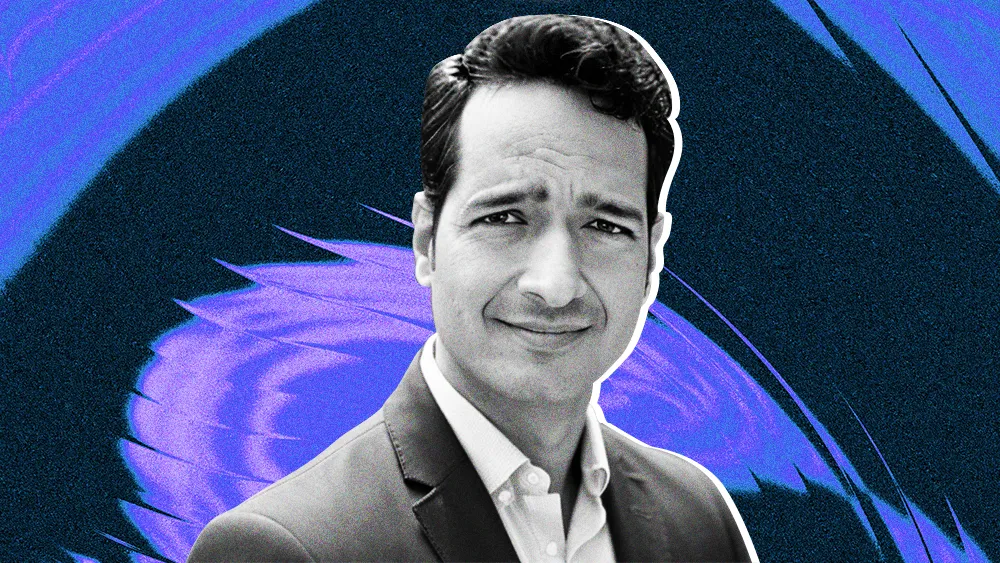
Veteran AI/ML expert Aditya Mehra of BofA joined us for an interview to discuss the importance of patience and planning over speed in AI implementation for regulated industries.
Mehra highlighted AI’s usefulness as a tool for enhancing business strategy, not an end goal in itself, and stressed the value of data quality over quantity.
His team uses AI for hyper-personalized financial advice and efficiency gains, such as reducing document review time by 70%.
Mehra also noted how federated learning is enabling banks to collaborate on fraud detection without exposing sensitive data.

Never before have the lines between consumer and enterprise technology been so blurred. The mainstreamification of generative AI, corresponding with ChatGPT’s dramatic launch in late 2022, changed the paradigm for end-user expectations. It irreversibly shortened time-to-value compared to legacy technical adoption. Both consumer-grade and highly technical users alike became addicted to simple chat interfaces that provide immediate utility from the first click.
But AI and machine learning are far from new technological concepts, and the data and governance foundations they are built upon have not fundamentally changed. At the enterprise level, safe and effective implementation is not always congruent with speed. The best AI leaders in highly-regulated industries are shunning hype while still leveraging the best new advancements in AI.
We spoke with Aditya Mehra, Senior Manager at Bank of America and a veteran machine learning expert with previous experience as a Senior Software Engineer at American Express. He and his institution are seasoned pioneers in the space, having championed AI years before generative AI became a household norm. Mehra stressed the value of patience and planning in high-stakes development cycles.
In search of immediate utility: Every enterprise leader is under pressure to deliver immediate ROI, creating a widespread misconception that AI is a plug-and-play solution. “Many people think they can expect a ChatGPT-like implementation where immediate utility will be present,” said Mehra. But in heavily regulated industries like finance, the winning strategy isn’t about speed; it’s about a painstaking, methodical patience that runs counter to the market’s hype.
The data quality doctrine: “In my opinion, quality and relevance of data matter more than quantity when it comes to developing new agentic AI systems. We’ve seen cases where reducing the sheer volume of data itself helps us model better,” he said.

Mehra encouraged normalizing longer 6-to-12-month development cycles for production systems. That timeline is a stark contrast to under-regulated AI-native startups that carry an expectation of new features weekly. He said a deliberate pace should not be conflated with “a delay”, and called it a necessary “banking gauntlet” indicative of a security-first culture.
A tool for trust: Mehra advised establishing a foundation of trust is what will enable the next wave of innovation, saying AI is a powerful enabling tool for business strategy, and not the end goal itself. “At the end of the day, financial institutions are not AI companies. Our work is to handle transactions properly, to manage trading, and to provide a safety net for our customers.” Agentic and generative AI systems are but another tool in his team’s engineering quiver used to enable that goal.
Beyond the chatbot: Ultimately, any rigorous tech process must move beyond generic tools. “These days, everybody is talking about chatbots,” Mehra noted, “but the real value is in hyper-personalized financial advice,” such as agentic capabilities like automated portfolio rebalancing driven by real-time customer behavior.
Efficiency gains: A patient approach has yielded powerful, tangible benefits across the business. According to Mehra, “In document intelligence, the payoff is a 70% reduction in manual document review time.” This is achieved not with basic checks, but by using specialized financial language models to extract key risk indicators from dense 10-K filings. The value extends to risk reduction, where traditional models are augmented with “real-time alternative data—social sentiment” and synthetic data for stress testing, providing an early warning system that achieves significantly lower false positive rates.
Such a business-first mindset unlocks new forms of collaboration. In an industry where banks often work in silos, emerging technologies like federated learning allow competing institutions to build shared fraud-detection models without ever exposing sensitive customer data. It also enables more sophisticated strategic planning, using generative AI to create thousands of economic scenarios—like “if a COVID-like scenario happens again, or if there’s some kind of trade war”—for more robust stress testing.
Looking ahead, Mehra calls this methodical approach the “third revolution” of technology, where the ultimate goal is not to replace humans with tech, but to augment them. “Our best results come from AI handling routine analysis while humans focus on strategic interpretation and stakeholder communication. That is still to say, we as humans remain the decision-makers.”
*All opinions expressed in this piece are Aditya Mehra’s own, and do not necessarily reflect the views of his employer.